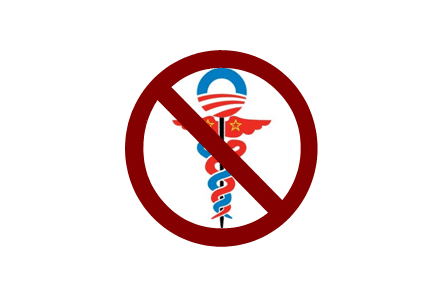September 22, 2023
Permission to republish original opeds and cartoons granted.
Democratic-Run States are Losing Population, Power, and Congressional Seats

By Bill Wilson
For years, Americans who believe in limited government and putting the American people first have had to watch as states like California, New York, and Illinois have turned their cities into dystopian hellscapes and sent unhinged politicians to Washington DC to inflict their policies on the rest of the nation.
But something very interesting has been happening over the past decade and this trend is only accelerating – the most left-wing states are slowly losing power as their populations decrease and residents move elsewhere. California, New York, Illinois, and others are losing population as residents move to friendlier and freer states. What this translates into is a mathematical solution to leftism and centralized government control.
As states lose people, they lose political power in Congress, and there is nothing they can do about it because of the way the Constitution allots Congressional seats based on population.
California, the state with the most Congressional representation because of its giant population, is already feeling the impact of population decline on its political capital. The coastal state lost one of its seats in the U.S. House after the 2020 census found it lost too many residents to maintain 53 seats.
This was the first time in California’s 171-year history that the state lost political power due to residents fleeing the state instead of flocking to it, but it likely isn’t the last. A detailed analysis from Decision Desk HQ estimates if Cali’s population trends keep falling, the state will lose five more Congressional seats after the 2030 Census.
California has been losing people to other states at approximately 0.3% a year which doesn’t sound like much, but California is a big state. That 0.3% a year migration loss translated to 343,270 residents exiting the state between 2021 and 2022 according to Census estimates.
This not only blunts Cali’s power in Congress, but it dampens Democrats’ chances in Presidential elections too. California has an outsized impact on the presidency, since Electoral votes are also based on population, or on existing House and Senate seats. In the next Presidential election California holds 54 Electoral votes, the most of any state followed by Texas which holds 40 Electoral votes. However, with California’s population dwindling, the state will likely lose more Electoral votes in future apportionment cycles.
This diminishment of power for liberal states like California who run their budgets into the ground and lock their citizens inside high-tax, low-freedom, crime-ridden hell zones is not happening overnight, but it is happening. Politics is just physics, and any action will always have an equal and opposite reaction.
With the exceptions of West Virginia and Ohio which have experienced population declines due to economic issues, the states losing population at the highest clip are left-wing states. Illinois, California, and New York all lost Congressional seats after the 2020 census. States that gained population and political power are mostly red states including Texas, Montana, Florida, and North Carolina.
Illinois presents a particularly compelling case, because unlike California Illinois has been steadily losing population – and power – for decades. Illinois lost one Congressional seat this January due to population loss, but Illinois has lost at least one member of Congress after each Census for the past 40 years. Illinois will also lose one electoral vote in the 2024 election, further weakening its grip on the rest of the country.
How about New York? New Yorkers are fleeing the state at almost a one-percent annual rate, and that translates into a loss of nearly 300,000 people between 2021 and 2022. As a result of population loss after the 2020 census, New York came just 89 residents short of securing all its Congressional Districts and lost one seat, showing just how razor-thin the margins can be.
According to the American Redistricting Project’s estimates if population declines continue on the same trajectory as they have for the past decade, California will lose five Congressional seats in 2030, Illinois will lose two seats, and New York will lose three seats. States that will gain seats if they continue attracting new residents include Idaho (+1), Utah (+1), Texas (+4) and Florida (+4).
While a red state earning a new Congressional seat due to inward migration doesn’t automatically mean that seat will be filled by a conservative, the chances are a whole lot better since new residents will melt into an ingrained culture. Patriots will still need to make their case for limited government and America First principles and continue fighting to keep their Congressional districts conservative and well-run. However, because what goes around comes around in politics, draconian-left-wing policies are finally having a tangible impact on people’s willingness to stick around, and that is translating into a loss of power for the left. Conservatives need to do everything in their power to hang onto their House seats until 2030 and integrate new residents to red states.
Bill Wilson is the former president of Americans for Limited Government.
To view online: https://dailytorch.com/2023/09/democratic-run-states-are-losing-population-power-and-congressional-seats/
Video: 5 Ways Democrats’ 2024 Plan Has Fallen Apart

To view online: https://www.youtube.com/watch?v=UdSrs8vCvRo
The Obamacare Offer We Should Have Refused: The Big Insurance Con That Drives Up Your Drug Prices And Their Profits

By Rick Manning
My doctor speculated that one day the mob would take over the health care business. Illegal drugs, prostitution, gambling rings, and the like only appeal to a small part of the population, but everyone needs to go to the doctor.
I think he was joking at the time … after all, the mob has nothing on the cronies who’ve already taken over health care.
Although Obamacare was sold as the solution to all of America’s health care woes, the outcomes almost 15 years later have been awful. Premiums have become more expensive as health insurance has become a bank-breaking necessity. Benefits have rapidly dwindled, the costs of treatment have increased, options have become more constrained, and the doctor-patient relationship has been indelibly sullied by the billing codes and arcane databases. Obamacare has been proven as the legislative snake oil of the 21st Century.
Perhaps it would be more accurate to say outcomes have been awful for us – the patient. Health insurance companies have raked in record profits under the “Affordable” Care Act.
Much like everything else in our gloomy, globalized era, the fundamental problem has been mass consolidation. The free-market economy doesn’t work when it’s unfree from monopolies, and there’s no greater monopoly than the federal government. When it picks winners – even under the oh-so altruistic banner of healthcare for all! – we all lose.
And under Obamacare, the biggest winner has been the UnitedHealth Group (UNH). In April 2010, right after the ACA was signed, UnitedHealth’s stock price was a paltry $30. It now hovers somewhere below $500.
Apparently when Obama said “at a certain point, you’ve made enough money,” he was not counting corporate insurance beneficiaries of his signature legislation.
Now perhaps that last one is not completely fair. After all, Democrats did try rein in insurers with the ACA. As has been pointed out in painfully precise detail, they stressed a provision called the medical loss ratio (MLR). The MLR requires companies to spend 80 to 85 percent of premium revenue on actual health care “so executives wouldn’t be able to pad their wallets as much.”
However, as is often the case with government mandates, insurers like UnitedHealth just maneuvered around the letter of the MLR rather than following the spirit of it. See, insurance companies tend to have diversified business interests – including pharmacy benefit managers (PBMs), physician-owned practices, payday loans, and so on.
So while the MLR capped profits for claims reimbursement at the point of service, differently designated treatments serve as a loophole, so insurance companies can get away with much less than that lofty 80 to 85 percent. In a Freakonomics-style “people respond very strongly to incentives,” the MLR instead created the financial imperative for insurance companies to become even more powerful rather than less.
UnitedHealth has taken point on consolidating the PBM industry when it acquired PacifiCare Health Systems in 2005, which they rebranded as “OptumRx.” Ten years later, UnitedHealth bought Catamaran – the fourth-largest PBM in the US – for just shy of $13 billion.
See PBMs exist (ostensibly) to serve as a negotiator between pharmaceutical and insurance companies. In theory, that’s a great idea – but not if one of those two parties owns the PBM. It’s like if the mob owns a law firm. The three biggest PBMs are each owned by a large insurer: Caremark is owned by CVS/Aetna and Express Scripts is owned by Cigna.
Insurance companies use their PBMs to drive up prescription drug prices for patients. A House Oversight Committee report found PBMs force drug manufacturers to increase their list price so that PBMs can pad their profits with bigger “rebates.”
Last year, OptumRx made almost $100 billion for UnitedHealth. In the past, we would have called that a conflict of interest. Nowadays it’s called “managed care.”
Adding to the cronyism and complexity, the industry has even recruited AARP as its political bodyguard. UnitedHealth pays AARP close to a billion a year to sell its insurance products to seniors and curry favor with politicians. Our whole byzantine health care system has become so overwhelmingly complicated it’s no surprise Americans are furious.
Insurance companies and their PBMs have gamed the system and their profits are up tens of billions. Patients are paying more for prescription drugs. And community pharmacies are closing at record rates.
The deck feels stacked against ordinary Americans. That causes America’s widespread loss of faith in institutions. Maybe it’s because these institutions have become too big for anyone’s good but the few dons at the top. The federal government should not be picking winners and losers, it certainly shouldn’t be creating monopolies who are incentivized to drive up drug prices for patients.
All of which leaves people like me wishing that health care industry would just be taken over by the mob. At least when they shake someone down, they’re honest about it.
Rick Manning is the President of Americans for Limited Government.
